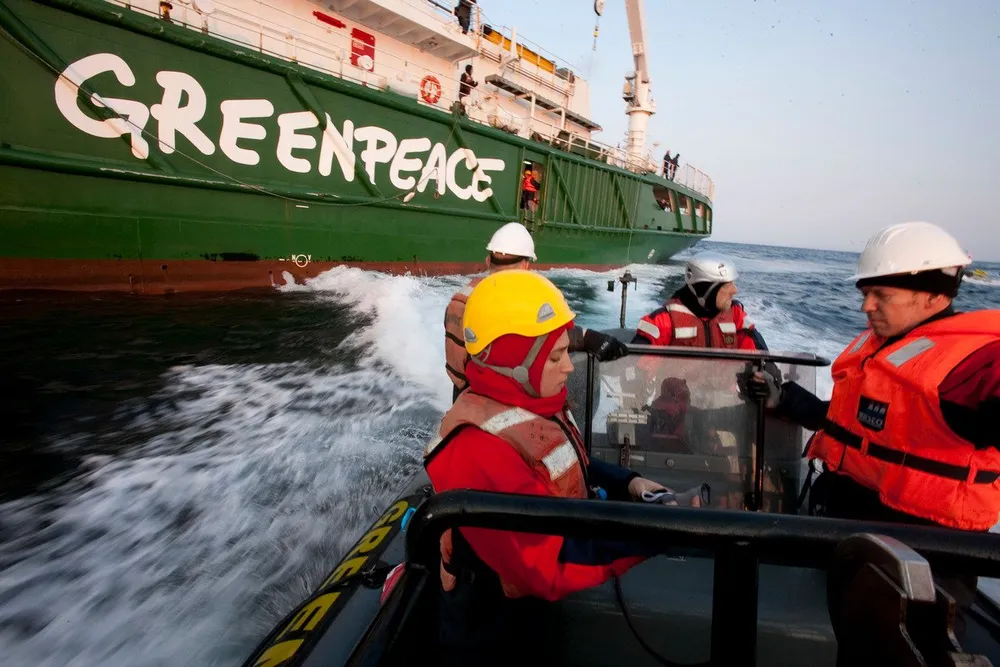‘Green colonialism’ attack on $30bn Morocco-UK power link plan
Xlinks project envisages building 4,000km undersea cable to pump renewable energy from Sahara Desert to the UK, with TotalEnergies, GE Vernova and Octopus Energy among backers

Greenpeace has attacked the “neocolonial dynamics” of green projects including a $30bn plan to build vast wind and solar farms in the Moroccan desert and transport the power generated to the UK via a subsea cable.
In the report, Greenpeace argues that investments not just in oil and gas but also in renewables and green hydrogen in Morocco and Egypt “often perpetuate unfair resource exploitation, with wealth and benefits flowing to the Global North – while contributing little to local economies.”
Green energy projects in Morocco and Egypt are it claimed “more about securing Europe’s energy needs than genuinely supporting sustainable development and a just transition in the Global South.”
The establishment of wind and solar farms feeding the grid or green hydrogen production facilities require “vast terrestrial and maritime areas, leading to conflicts with local livelihood activities,” it said.
“In regions characterised by power asymmetries, land tenure insecurity, and deep historical legacies of injustice, such projects can exacerbate social exclusion, usurp community territories, and deepen socio-environmental vulnerabilities.”
Although these investments are “often framed as mutually beneficial or ‘green,’” it said the reality is that they “primarily serve European markets and externalise the environmental and social costs of Europe's growth to the Global South.”
The push for green hydrogen and renewable energy mainly for export purposes has “introduced a new form of extractivism, often termed ‘green colonialism,’” it said. Green colonialism is the “continuation of colonial relations of plunder and dispossession in the era of renewable energies.”
In Morocco, for example, it said that European investments in its renewables sector are “extensive and reflect a strategic shift towards green energy production with maintained neocolonial power dynamics.”
The UK is already much more progressed in its energy transition than Morocco, with a reported 58% of its power coming from low-carbon sources last year. Morocco is still looking to make major inroads into diversifying its fossil fuel-heavy energy mix.
Greenpeace said research has “found considerable risk for the perpetuation of the ‘resource curse’ – a notion describing the tendency of resource-rich economies to underperform in terms of economic growth and development outcomes – in Morocco through the development of renewable energy for exports.”
Internationally, Greenpeace calls for “reforms in international trade and loan agreements that dismantle neocolonial economic structures,” and for a transformation of the global financial architecture that redresses “power imbalances”.
It also says that European and all foreign companies investing in the Global South must conduct comprehensive environmental and social impact assessments that “go beyond the minimum legal requirements.”
"Acting in partnership across countries, we are working together to create a new virtuous energy eco-system that is game-changing for the global fight against climate change bringing benefits to all parties involved."
It said the Morocco-UK project "aligns with Morocco's strategic objectives to become a green energy hub, contribute to the development of a new clean energy industry, contribute to Morocco’s energy transition objectives and attract private foreign investment," adding that it expects to unlock major macroeconomic social and industrial benefits.
Xlinks added that it takes an "inclusive approach to ensure a net positive impact on communities, resources and infrastructures, from day one of operation and over the longer term.”
(Copyright)